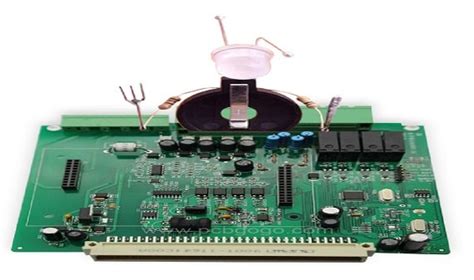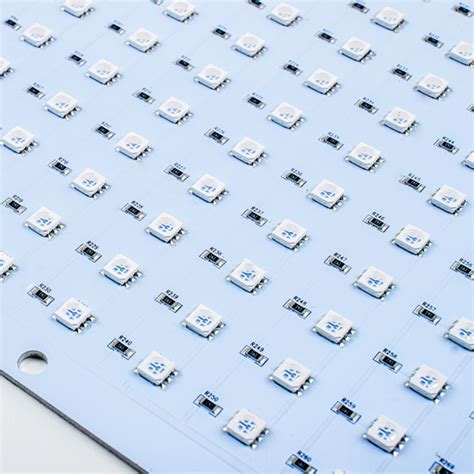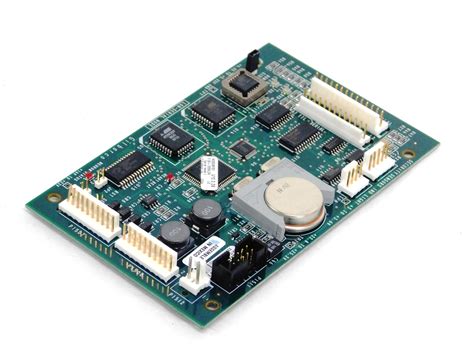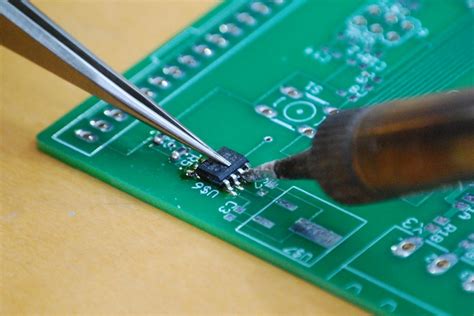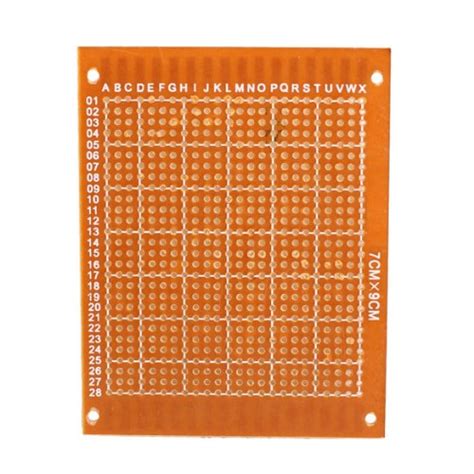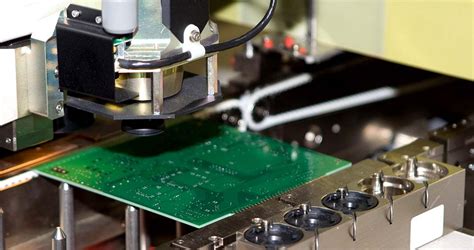Unlocking Innovation: The Benefits of Turnkey PCB Solutions in Modern Electronics
Key Takeaways
The integration of turnkey PCB solutions has fundamentally transformed the landscape of pcb assembly in the electronics industry. These all-encompassing services not only simplify the pcba process but also lead to significant improvements in both efficiency and product performance. By opting for a turnkey solution, organizations can benefit from a streamlined approach that encompasses every stage of development, from initial design to final manufacturing. This holistic method mitigates the complexities associated with managing multiple suppliers and ensures that components are seamlessly connected and optimized for functionality. Moreover, embracing turnkey PCB services allows companies to redirect their focus toward innovation and product development rather than logistical challenges. As competition intensifies in an ever-evolving market, the choice to utilize a turnkey PCB provider becomes not just advantageous, but essential for maintaining a competitive edge while delivering high-quality products on time and within budget. By leveraging these solutions, businesses can accelerate their time-to-market and consistently meet evolving customer demands without compromising on quality or efficiency.
The Evolution of PCB Technology: A Brief Overview
The field of printed circuit board (PCB) technology has witnessed remarkable advancements since its inception, evolving from rudimentary designs to sophisticated systems that underpin modern electronics. Early PCBs were primarily single-sided and utilized basic materials, limiting their performance and application. However, as the demand for more complex devices grew, so did the technology surrounding pcb assembly. Innovations such as multi-layer PCBs, high-density interconnects, and advanced materials have expanded the capabilities of PCBA, allowing for smaller and more powerful electronic components. The introduction of computer-aided design (CAD) software revolutionized the design process, making it easier for engineers to create intricate layouts that optimize space and functionality. Moreover, the rise of automation in PCB manufacturing has dramatically improved production efficiency while reducing errors. Today’s turnkey PCB solutions encapsulate all aspects of the manufacturing process—from design to final assembly—enabling companies to leverage these technological advancements effectively. By embracing this comprehensive approach, businesses can stay ahead in an increasingly competitive marketplace while ensuring high-quality outcomes for their electronic products.
Understanding Turnkey PCB Solutions: What They Are and How They Work
Turnkey PCB solutions represent a transformative approach in the realm of pcb assembly and pcba processes. At its core, a turnkey solution simplifies the complexities of electronics manufacturing by offering an all-encompassing service that includes everything from initial design and prototyping to production and post-manufacturing support. This means that companies can partner with a single provider who manages the entire lifecycle of the PCB development, ensuring that every detail is addressed efficiently.
The beauty of turnkey solutions lies in their ability to reduce the burden on manufacturers, allowing them to focus on their core competencies. With streamlined processes, businesses can expect a faster turnaround time as well as enhanced communication throughout all stages of production. By utilizing advanced technology and automation within their services, turnkey providers ensure precision in pcb assembly, which ultimately leads to high-quality end products.
Moreover, the collaborative nature inherent in these solutions facilitates innovative design iterations without extensive delays or unnecessary costs, fostering an environment where creativity can flourish. In an age where speed and agility are critical for success, understanding how these comprehensive pcba services work is essential for any enterprise aiming to thrive in a competitive electronics landscape.
Key Benefits of Turnkey PCB Services for Modern Enterprises
In today’s competitive landscape, turnkey PCB solutions provide a strategic advantage for modern enterprises. One of the primary benefits is the seamless integration of PCB assembly services, which simplifies the traditionally complex process of developing printed circuit boards (PCBs). By sourcing everything from design to manufacturing under one roof, companies can significantly reduce the time-to-market for their products. This efficiency allows businesses to respond swiftly to market demands and innovate at a faster pace.
Additionally, these comprehensive packages often result in cost efficiency, as they eliminate the need for multiple suppliers and reduce overall operational overheads. For instance, utilizing a turnkey approach can result in bulk production discounts and lower labor costs associated with managing several contracts. This is particularly advantageous in today’s volatile market environments, where every dollar saved can contribute to increased competitiveness.
Enhancing product quality is another vital benefit derived from the benefits of turnkey PCBA services. With all stages of production closely monitored by a single provider, inconsistencies can be swiftly addressed before they escalate into larger issues. This coordinated approach invariably leads to higher-quality end products that meet customer expectations.
“A cohesive strategy not only streamlines production but also empowers innovation.”
Enterprises looking to implement such strategies should consider establishing a thorough evaluation process when selecting their turnkey PCB providers; this ensures that their partner aligns with both technical requirements and business objectives. With these considerations in mind, companies can harness the transformational potential of turnkey solutions to solidify their positions within their respective markets.
| Benefit | Description |
|---|---|
| Time-to-Market | Faster delivery and implementation of new product designs |
| Cost Savings | Reduction in overall costs through streamlined procurement and manufacturing |
| Quality Assurance | Enhanced product quality through integrated processes |
By prioritizing turnkey PCB solutions, enterprises not only elevate their operational effectiveness but also pave the way for sustained innovation in an ever-evolving industry landscape.
Cost Efficiency and Time Savings Through Turnkey Solutions
Turnkey PCB solutions provide an exceptional avenue for achieving cost efficiency and significant time savings in the intricate realm of PCB assembly. By integrating the various stages of design, production, and testing into a single package, these solutions eliminate the need for multiple vendors, thus reducing overhead costs associated with project management. Companies can streamline procurement processes and minimize delays often incurred during inter-vendor communications. Moreover, with turnkey services, the entire PCBA process is handled by a single entity, enabling faster decision-making and problem-solving. This holistic approach not only accelerates time-to-market but also allows firms to allocate resources more effectively towards innovation and product development. As a result, businesses can focus on enhancing their unique value propositions while maintaining competitive pricing strategies. Ultimately, adopting turnkey PCB solutions facilitates budget control and operational efficiency, which are crucial in today’s fast-paced technological environment.
Enhancing Product Quality with Comprehensive PCB Packages
The integration of turnkey PCB solutions plays a pivotal role in enhancing product quality for modern electronics. When companies opt for these all-inclusive packages, they benefit from a streamlined pcb assembly process that combines design, manufacturing, and testing under one roof. This approach not only simplifies communication between teams but also ensures that every aspect of PCBA is meticulously managed. By leveraging a single provider for the entire production cycle, businesses can implement rigorous quality control measures throughout the pcb assembly stages, thereby reducing the chances of defects and reworks.
Moreover, comprehensive turnkey PCB packages typically include advanced testing methodologies that are crucial for identifying potential issues early in the development phase. This proactive approach leads to more reliable products that meet stringent industry standards and customer expectations. By focusing on quality at every step of the PCBA journey—from initial design prototyping to final product rollout—companies can enhance their reputation and ensure customer satisfaction.
Furthermore, as technological demands continue to shift and evolve, companies utilizing these turnkey solutions remain agile and responsive to market trends. They can integrate innovations more seamlessly since their supply chain is optimized for quality and speed. Ultimately, embracing comprehensive PCB packages not only bolsters product quality but also positions businesses competitively in an ever-changing landscape of electronic innovation.
Strategies for Choosing the Right Turnkey PCB Provider
Selecting the right turnkey PCB provider is crucial for businesses aiming to optimize their product design and manufacturing processes. First and foremost, it is essential to evaluate the provider’s experience and expertise in PCB assembly. A provider with a proven track record in delivering high-quality PCBA services can significantly impact the reliability and performance of your products. Moreover, consider the range of services offered; an ideal turnkey provider should cover everything from design to production and testing. This all-inclusive approach ensures seamless integration between processes, reducing potential delays.
Next, focus on the technology used by the provider. Assessing their manufacturing capabilities, such as advanced machinery for pcb assembly, can indicate their ability to handle complex designs and meet specific requirements. Additionally, inquire about their quality assurance measures; a solid quality control system can enhance product reliability and customer satisfaction.
Lastly, engagement with previous clients through case studies or testimonials can provide insights into a provider’s responsiveness and support throughout projects. This feedback is invaluable in understanding how partners address challenges during the PCBA process. By considering these factors, businesses can make informed decisions when selecting a turnkey PCB provider that aligns with their goals for innovation and efficiency.
Case Studies: Successful Implementation of Turnkey PCB Solutions
In recent years, several companies have experienced significant benefits from adopting turnkey PCB solutions. For instance, a tech startup focusing on wearable devices faced challenges in their pcb assembly process due to limited resources and time constraints. By partnering with a turnkey PCB provider, they accessed a seamless integration of design, prototyping, and manufacturing into a singular package. This not only accelerated their pcba timeline but also optimized costs associated with outsourcing multiple vendors for different stages of production. Additionally, the end product demonstrated enhanced functionality and reliability, ultimately leading to improved customer satisfaction and market performance.
Another case study involves an established electronics manufacturer looking to revamp their product line with an eye on sustainability. By leveraging turnkey PCB solutions, they were able to work closely with their supplier to implement eco-friendly materials during the pcb assembly process while maintaining cost efficiency. This collaboration resulted in a product that met both performance standards and corporate responsibility goals.
These examples underscore the transformative power of turnkey PCB services in facilitating not just operational efficiency but also innovation in product development. Companies embracing these comprehensive solutions can capitalize on opportunities in the fast-paced electronics market while ensuring high-quality outcomes that align with contemporary consumer expectations.
Future Trends in Turnkey PCBs and Their Impact on Innovation
As technology continues to advance at a rapid pace, the landscape of turnkey PCB solutions is evolving to accommodate emerging demands and increasing complexity in electronic products. The integration of smart technology into products necessitates a more agile and responsive approach to PCB assembly. One significant trend is the growing emphasis on automation within the pcba process, allowing for faster production times and enhanced efficiency. Manufacturers are investing in state-of-the-art machinery that streamlines design alterations, ensuring that even last-minute changes can be accommodated without substantial delays or cost hikes.
Additionally, sustainability has become a pivotal focus within the industry. Companies are increasingly seeking eco-friendly materials and processes in their turnkey PCB service offerings. This shift not only addresses growing environmental concerns but also attracts consumers who prioritize sustainability in their purchasing choices.
Another notable trend is the rise of design for manufacturability (DFM) principles being integrated into turnkey solutions. This strategic approach ensures that products are not only designed for functionality but also optimized for efficient production. By prioritizing DFM, businesses can significantly reduce errors during the pcba phase, which ultimately enhances product quality and reliability.
Lastly, as digital transformation continues to reshape various industries, future-focused turnkey providers are incorporating advanced software tools that enable enhanced collaboration during the design process. These tools facilitate real-time feedback between engineers and manufacturers, fostering innovation through shared insights and expertise. By embracing these future trends, companies can utilize turnkey PCB solutions not merely as a means of production but as a strategic enabler of innovation that keeps them ahead in an increasingly competitive marketplace.
Conclusion
In conclusion, the adoption of turnkey PCB solutions is a pivotal aspect for enterprises striving to maintain a competitive edge in the fast-paced electronics industry. By offering an all-encompassing service that includes not only pcb assembly but also design, sourcing, and manufacturing, these solutions facilitate a smoother workflow. Businesses can leverage pcba (printed circuit board assembly) to enhance their operational efficiency and focus more on innovative development. The integration of turnkey services allows for significant reductions in both time-to-market and operational costs while simultaneously increasing the overall product quality. As technology continues to advance, those who embrace these comprehensive packages will find themselves notably better equipped to tackle new challenges and capitalize on emerging opportunities in the market. This strategic approach not only fosters creativity but also empowers businesses to respond effectively to consumer demands and industry trends, driving sustained growth and success in an increasingly dynamic environment.
FAQs
When delving into turnkey PCB solutions, many businesses often have questions about the intricacies and advantages associated with these comprehensive services. One common inquiry is about the difference between PCB assembly and a turnkey PCBA. While PCB assembly refers specifically to the process of placing components onto a printed circuit board, a turnkey PCBA includes everything from the design phase to final packaging, streamlining what can often be a complex production process. Additionally, companies frequently wonder how much time can be saved by choosing turnkey solutions. The answer is significant; with integrated services, businesses can reduce their time-to-market, allowing them to focus on innovation. Another pivotal concern revolves around cost; organizations have noted that leveraging a turnkey PCB provider often leads to overall cost savings due to reduced overhead and efficient resource management. Understanding these aspects is crucial for moving forward in today’s competitive landscape. If you’re considering a shift to these all-inclusive services, further inquiries can help clarify the potential benefits for your specific needs.

